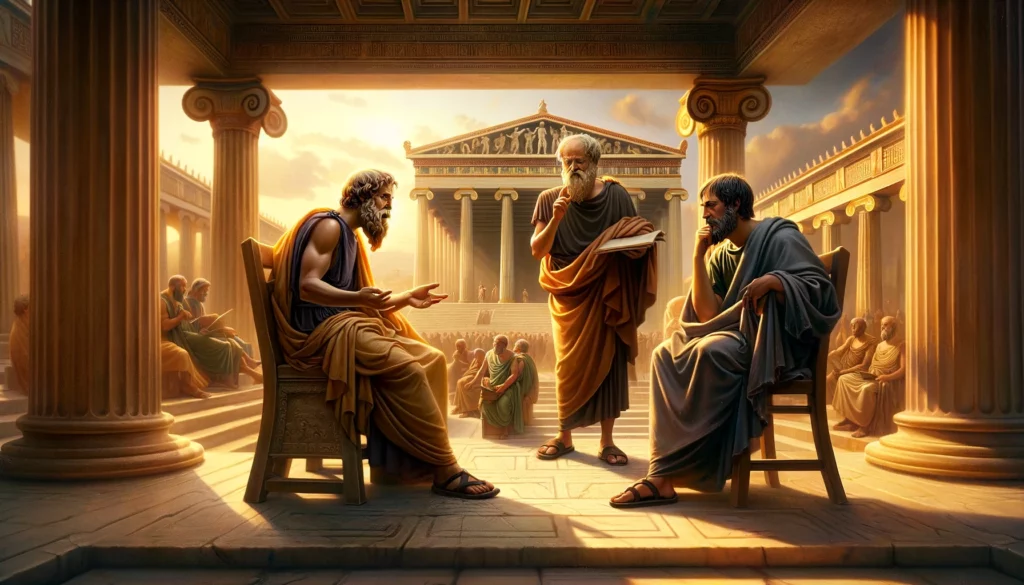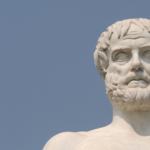Ancient Greek Philosophers
In ancient Greece, a remarkable group of thinkers started to emerge. Thinkers that, through exploring both the internal and external worlds, have deeply influenced the way we understand the world today. These philosophers, including Socrates, Plato, and Aristotle, ignited in the ancients, the intellectual journey. The quest for knowledge and understanding. They added the spark to the exploration of the very essence of reality, ethics, and knowledge. How could they have possibly known that their inquiries would lay the foundation stones of Western philosophy for millennia to come. That encouraging people to question the nature of existence, governance and society would be so profound.
The impact of these great ancient Greek philosophers extends far beyond their historical period, influencing countless generations in areas ranging from science and politics to ethics and art. Their methods paved the way for modern scientific principles and theory. So who were these ancient disruptors? These thoughtful minds that inspired so many fields of study? Well, here's a brief introduction to some of the most influential. You can read more about each in their individual posts.
Ancient Greek Philosophers
Socrates (470-399 BCE)
Socrates is often hailed as the father of Western philosophy. Known for his distinctive method of inquiry and debate, the Socratic method, he focused on ethical questions and the examination of moral concepts. Unlike many of his predecessors, Socrates left no writings; our knowledge of his teachings comes from his students, notably Plato.
Plato (428-348 BCE)
A student of Socrates, Plato founded the Academy in Athens, one of the earliest institutions of higher learning in the Western world. His dialogues, which feature Socrates as a central character, explore a wide range of philosophical topics, including justice, beauty, and equality. Plato's theory of Forms or Ideas is one of his major contributions, positing that the material world is only a shadow of the true reality of the eternal Forms.
Aristotle (384-322 BCE)
Aristotle was the student of Plato to whom he passed the torch. He went on to make significant contributions of his own in many different fields of knowledge. These included logic, metaphysics, ethics, politics, and natural sciences. Aristotle founded his own school, the Lyceum, in Athens, to encourage Greece's greatest minds. He is well-known for his empirical approach and for asserting that knowledge comes from sensory experience.
Diogenes of Sinope (c. 404-323 BCE)
Diogenes was a controversial figure and a key philosopher of the Cynic movement, which advocated for a life lived in virtue in agreement with nature, eschewing societal conventions and material possessions. He is famous for his ascetic lifestyle and for carrying a lantern in daylight, claiming to be looking for an honest man.
Pythagoras (c. 570-495 BCE)
Best known for the Pythagorean theorem in mathematics, Pythagoras was also a philosopher who believed that numbers were the fundamental reality of the universe. He founded a movement with religious overtones, known as Pythagoreanism, which made significant contributions to philosophy and religious thought in the late 6th century BCE.
Heraclitus (c. 535-475 BCE)
Heraclitus is best known for his doctrine that change is the fundamental essence of the universe, as expressed in his famous saying, "You cannot step into the same river twice." He believed in the unity of opposites and that fire is the primary substance that transforms into everything else.
Zeno of Elea (c. 490-430 BCE)
Zeno is famous for his paradoxes, which he used to support the teachings of his mentor, Parmenides, who argued that despite appearances, the belief in plurality and change is mistaken. Zeno's paradoxes challenge our understanding of motion and space and are still discussed in philosophy today.
Greek Philosophers
Aristotle
Aristotle was a Greek philosopher and scientist who lived from 384 BCE to 322 BCE. He was a student of Plato and went on to become one of the most influential thinkers in Western philosophy and intellectual thought. Aristotle’s writings cover a wide range of subjects, including metaphysics, ethics, politics, and biology, and his ideas […]
The Greatest Ancient Greek Philosophers
Today, we have a strong foundation of knowledge to help us understand the world around us. We rely on scientific facts and data to govern our way of thinking. But before we got to this point, humans had to rely on other ways to interpret the world. For the ancient Greeks, it was mythology and […]


